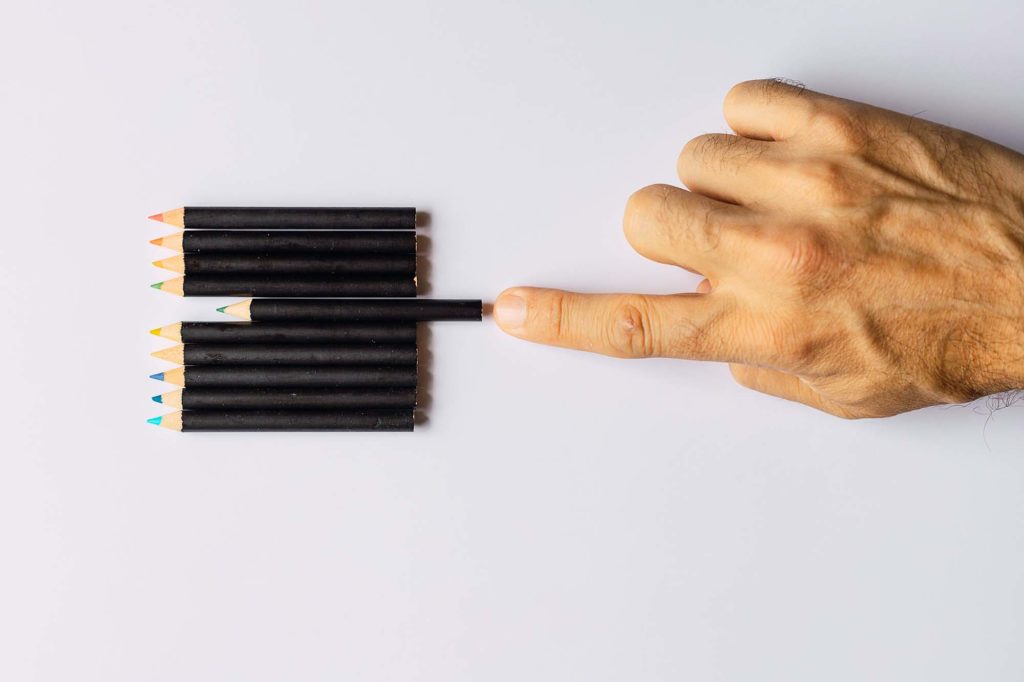Stigma Against People With OCD Varies With Their Obsessions

People with obsessive-compulsive disorder (OCD) not only struggle with obsessional thoughts and compulsive behaviors but also experience various forms of stigma. But the exact nature of these stereotypes depends on the subject of their obsession, according to a recent study published in Clinical Psychological Science.
“OCD stigma is complex, and it is real,” said lead author Gabriella T. Ponzini (Durham Veterans Affairs Medical Center) in an interview with APS. “Our findings suggest that different stereotypes exist across OCD presentations and these stereotypes depend on the content of intrusive thoughts.”
OCD involves a range of thoughts and behaviors. Researchers have broken these obsessions down into two broad categories:
- autogenous obsessions, which involve intrusive thoughts related to sexuality, aggression, and morality that individuals do not want to act on; and
- reactive obsessions, which involve intrusive thoughts related to contamination and maintaining symmetry by getting things “just right.”
In the first of two studies, Ponzini and colleagues presented 60 participants with one of five vignettes depicting a father, John, with different presentations of OCD related to his children. After reading the vignette, participants responded to qualitative questions in which they were asked to share their opinions about John.
Participants who read about John having sexual, harm/aggression, or scrupulous (religious/morality-based) autogenous obsessions described him as “a social outcast who could be a threat to society,” Ponzini and colleagues wrote. Those who read about John having contamination and symmetry-based reactive obsessions, on the other hand, were more likely to blame him for his symptoms, trivialize his condition, and perceive him as a nuisance to others. Importantly, across all obsessional themes, participants trivialized the distress John experienced because of his OCD, Ponzini noted.
“These results are concerning, as they suggest that people with OCD will encounter stigma about the nature of their intrusive thoughts and the distress they experience,” Ponzini explained.
In the second study, 698 participants read one of seven vignettes, including the five OCD vignettes and two additional vignettes depicting generalized anxiety disorder (GAD) or schizophrenia, before completing questionnaires about stigma against people with these conditions.
Consistent with the qualitative study, participants reported a greater desire for social distance and higher perceptions of dangerousness in response to the sexual and harm/aggression-based OCD vignettes. While participants reported greater stigma against sexual OCD than any other mental health condition, participants had similar levels of stigma against harm/aggression OCD, scrupulous OCD, and schizophrenia, the researchers noted. Participants also reported similar levels of anxiety-relevant stigma—including dismissing the seriousness of anxiety and blaming people for the condition—against people with reactive obsessions and GAD.
“Together, these studies highlight the pervasive, negative beliefs held toward individuals with OCD and demonstrate the complexities in stereotype endorsement across OCD-symptom presentations,” Ponzini and colleagues wrote.
Additional research could further illuminate the complex nature of the stigma that individuals with OCD experience, as well as the ways stigma may differ with individuals’ race, gender, and other identities, said Ponzini. This branch of research could also lead to more effective strategies to combat stigma, such as public education and community contact with people with OCD, the researchers wrote.
“There is a great need to understand and address OCD stigma,” Ponzini said. “If you have ever experienced stigma as a result of your symptoms or diagnosis, you are not alone.”
Feedback on this article? Email [email protected] or login to comment. Interested in writing for us? Read our contributor guidelines.
Reference
Ponzini, G. T., Signorelli, M., Claydon, E. A., Lilly, C., & Steinman, S. A. (2023). Stereotypes and OCD-symptom presentations: A mixed-methods evaluation using male-character vignettes. Clinical Psychological Science. https://doi.org/10.1177/21677026231192893





APS regularly opens certain online articles for discussion on our website. Effective February 2021, you must be a logged-in APS member to post comments. By posting a comment, you agree to our Community Guidelines and the display of your profile information, including your name and affiliation. Any opinions, findings, conclusions, or recommendations present in article comments are those of the writers and do not necessarily reflect the views of APS or the article’s author. For more information, please see our Community Guidelines.
Please login with your APS account to comment.